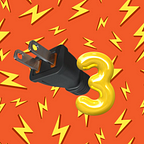Introducing Random Donations | The Yolo of Public Goods Funding
TLDR
- PotLock introduce Random Donations as main call to action to app
- Random Donations serves as a new class of class of public goods funding to emerge to help the discovery of projects and incentivize those to signup on the public goods registry
Overview
In a world drowning in information overload, attention is currency. Yet, countless worthy projects fighting for good struggle to be seen. Enter Potlock’s “Random Donations,” a playful new funding strategy that can fundamentally change the way we fund public goods.
Imagine: instead of meticulously researching, you click a button. A delightful surprise unfurls — a random project deserving of your support. As the public goods registry grows, this can have a counterintuitive side-effect with lower user sentiment and choice overload, leading to drop offs for actual donations. A study published in the “Journal of Consumer Psychology” found that an excess of choices might make consumers less satisfied with their decisions, even if they end up making objectively better choices. Moreover, the classic study Iyengar and Lepper (2000) found that consumers presented with a smaller selection were ten times more likely to make a purchase than those presented with a larger selection. A clear example of how offering too many choices can reduce the likelihood of making a decision at all, potentially leading to lost donations. With randomness, there is no analysis paralysis, just a serendipitous encounter with initiatives that might not have otherwise crossed a donor’s path.
This playful approach also taps into the human love for chance. As over 3+ billion humans indulge in lotteries spending over $260 billion annually, Potlock harnesses that thrill for a higher purpose. It becomes a “YOLO of public good funding,” injecting an element of fun and discovery into the act of giving. But the benefits go beyond mere entertainment. Random donations combat confirmation bias, that pesky habit of favoring information that aligns with our beliefs. By shuffling the deck, they break our echo chambers and expose us to diverse causes, perhaps even challenging our preconceived notions. With over 1.5 million registered non profits in the US, a < 50% donor retention rate, and a failure for public goods to modernize their communications, it’s becoming extremely hard for projects to be found and engage a donor base.
For projects, randomness is a game-changer. The spotlight can illuminate even lesser-known initiatives, fostering a more equitable landscape. Imagine hidden gems and passionate individuals, finally getting the recognition they deserve. Random donations as well as random payment streams, through “Foodbank” wallets like what is used for royalties on the YEAR of CHEF NFTs, creates a steady flow of donations for your projects without the need to advertise, ensuring that if you get on the public goods registry, you will get funding quicker & consistently. With discovery, impact tracking, and access to quadratic funding rounds, these value-adds have even led closed source projects to open source their resources to get on the Potlock public goods registry.
How It Works
Simply click “Donate Randomly”, choose the currency and amount you want to donate, and then click donate. Afterward you can see which project you donated to with the option to share or repeat..
Additionally on our homepage, everytime you explore projects, projects are displayed randomly each time, to set the table more evenly.
Future of the Feature
Currently, the feature leverages only the donation contract. In the future, we plan to add categories and curated list contracts to enable donating randomly across a subset of groups, as well as the ability to donate to multiple projects within that set. This approach can also be applied to other upcoming strategies, such as quadratic funding and campaigns. Adding to the chance rewards ecosystem, ecosystem partners are devising incentives for those who support public goods beyond those listed in the official public goods registry. In the future, we will integrate this with random rewards for not only projects but also donors, and sponsors,, thereby creating a virtuous cycle of giving and engagement.
